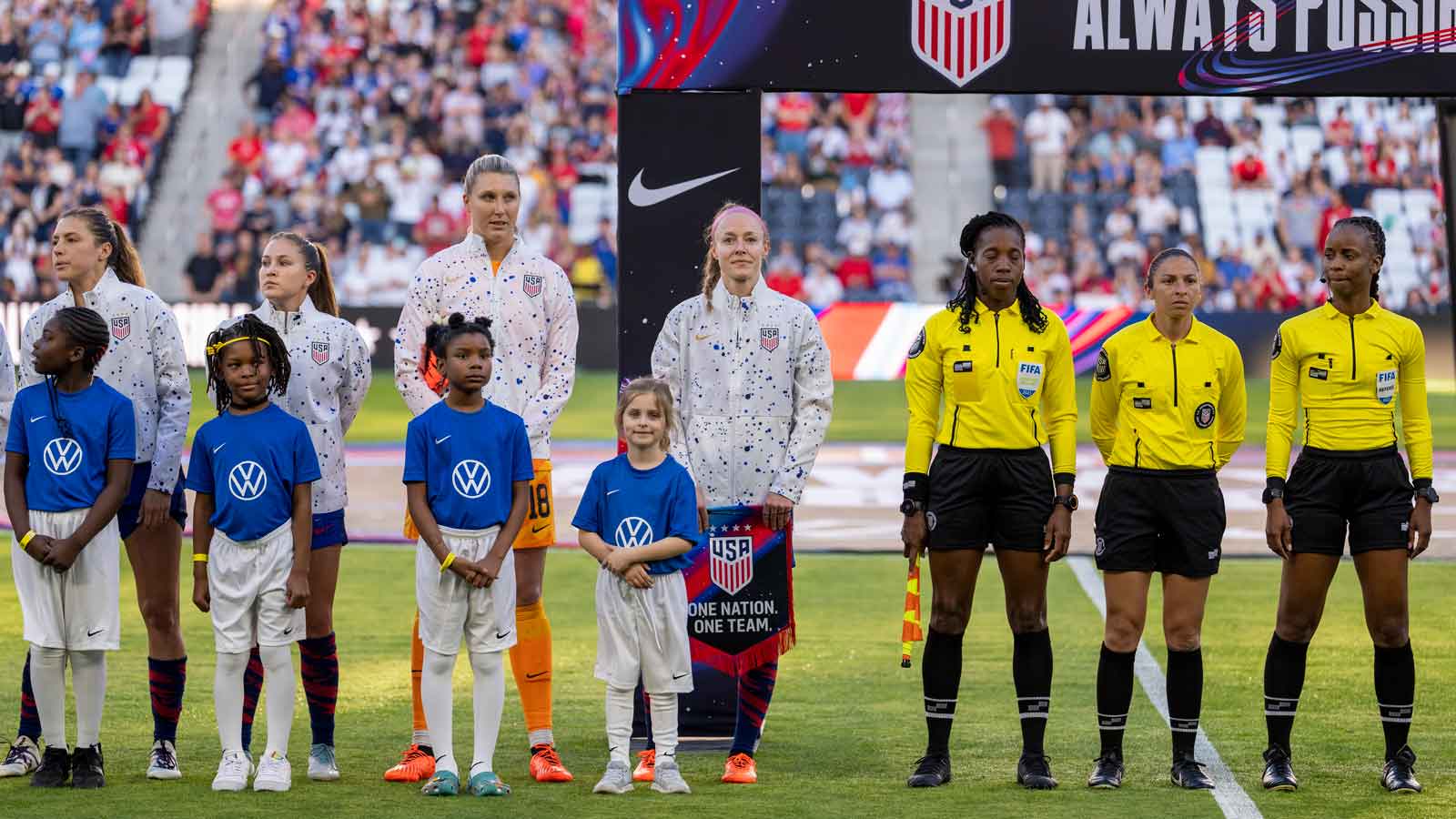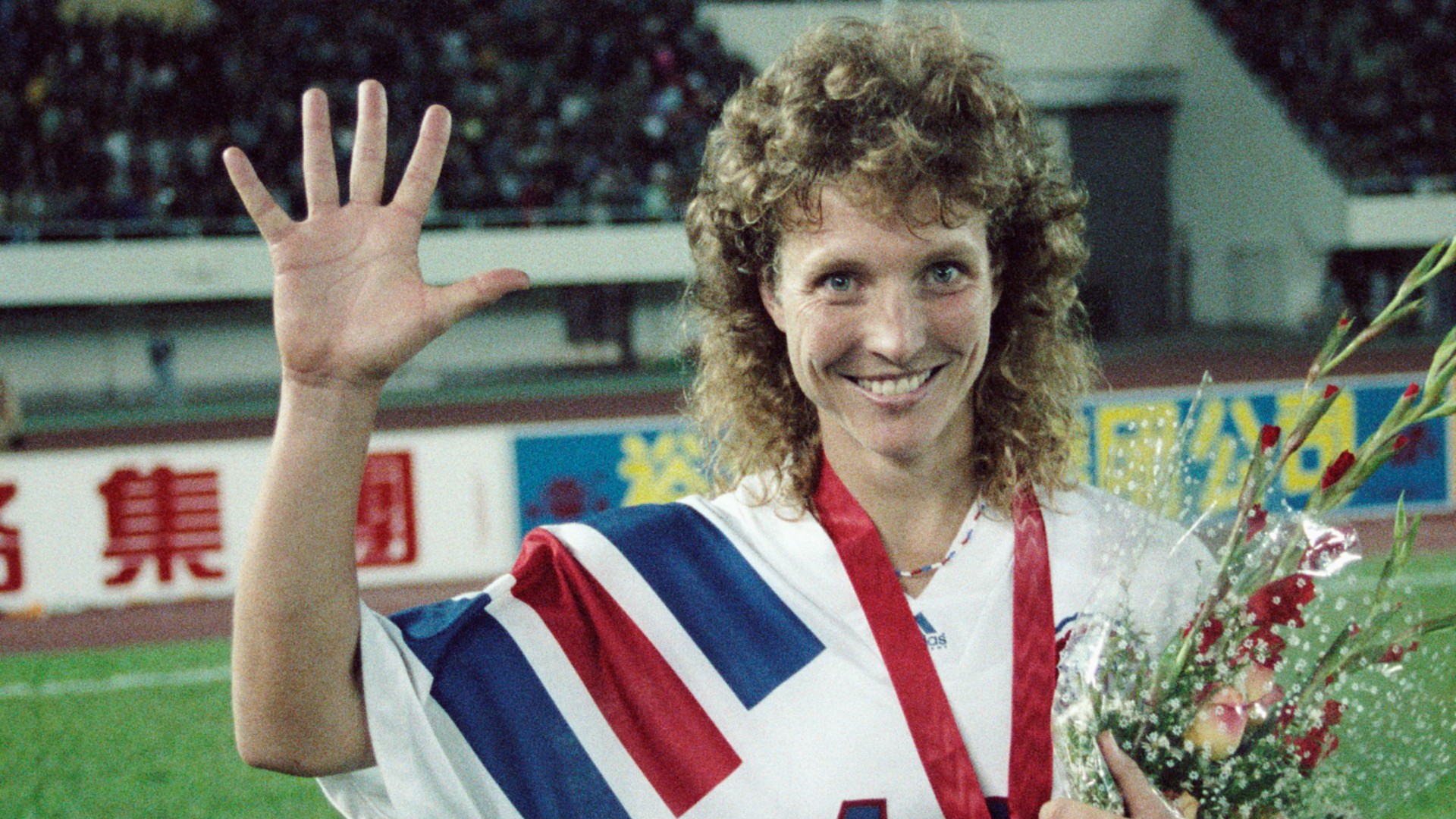Editor's note: Becky Sauerbrunn announced she will miss the 2023 World Cup due to a foot injury
Who says you need to be loud to be a leader?
That’s not completely the case with Becky Sauerbrunn, the star captain of the United States women’s national team.
Sauerbrunn, 38, has been in the game a long time – even before her collegiate days at Virginia beginning in 2003.
Get Tri-state area news delivered to your inbox. Sign up for NBC New York's News Headlines newsletter.
Two decades later, the St. Louis native continues to defy Father Time by playing at an elite level for both club (NWSL’s Portland Thorns) and country. If it wasn't for a foot injury that forced her to miss out of the 2023 Women's World Cup co-hosted by Australia and New Zealand, Sauerbrunn would've made her fourth appearance in the quadrennial tournament, a testament to her longevity.
Her absence will be a significant loss to the U.S. side given her consistency and experience as a center back, though her leadership off the pitch is just as vital.
And she does so in quite a unique way.
Gender inequality unfortunately remains a common theme in many aspects of life, and sports are not immune.
For Sauerbrunn, her journey in speaking out against gender inequality and creating meaningful change started firsthand when she was a student-athlete in high school.
“I realized that in high school,” Sauerbrunn said on NBC’s “My New Favorite Futbolista” podcast. “I didn't really know the words to use it, but going to the men's soccer game as opposed to the women's soccer game and [thinking] why were there more people at the men's game and not the women's game?
“And then you go to a football match and our team was terrible and yet there were so many people there and we had these women's teams, like our basketball team was super good, but people weren't showing up for our games. And I was like, why? Why is this? I don't understand this. I didn't know how to phrase it or put any meaning behind it, but it was noticeable.”
Sauerbrunn gradually realized that gender equality isn’t normal. She might not have known the words for it, but she could tell something wasn’t right about the disparity.
She then made her USWNT senior debut in 2008 after rising through the ranks of the youth teams. In 2016, she was named captain of the team alongside Carli Lloyd during the Rio Summer Olympics.
Her time playing for the national team helped open her eyes, Sauerbrunn said. She began attempting to reconstruct the situation to make more sense of it, which helped her start thinking about the reasons behind why such gaps were prominent.
“I started the process of unlearning it by being surrounded by women who had already gone through that kind of revelation, that this isn't right,” Sauerbrunn said. “Why do I believe these things?
“Because I remember going into the national team and we were getting like eight or 10,000 people at our games, whereas the men, you know, they were selling out, you know, 25, 26,000 people at their stadiums and not understanding why that was, not understanding anything about investing early on to see a return on the investment later on, and thinking like, well, no wonder the men make more money than us, like they get more people at these games.”
Sauerbrunn then started to speak out about the inequality, but she said that didn’t happen until she had been playing with the national team for a while. She began speaking to more women who had worked with the older generation of players, such as Julie Foudy, Michelle Akers and more, to spark conversations around earning a liveable wage by doing what they love.
Through conversations with the U.S. Soccer Federation, Sauerbrunn and Co. realized they would need to utilize their platform more often to apply pressure and give the women more leverage in their fight, as talks usually became stagnant and nonchalant.
When the historic equal pay agreement was struck in September of 2022 – a deal that gave women identical pay structures to men for appearances and tournament victories, revenue sharing and equitable distribution of World Cup prize money – Sauerbrunn felt pure elation on what she and the women had accomplished, along with plenty of gratitude for those who helped get it over the line.
“It felt really, really good. Really good,” she said. “And it was awesome that it was in D.C. and a packed house. We had just won the game. We had all these labor union leaders, you know, Major League Baseball, football, NWSL, obviously our own Players Association senators, you know, people there who were invested in the fight a lot longer than maybe we had been. And to sign it on that night in front of everybody and to be able to, like, thank the people that really helped us along the way, including that original group of women, it felt so good. So good.”
But while most fans and supporters only saw the final result, they don’t see or experience the specific details and preparation that go into fighting for something as important as gender inequality.
So, while people know the players struggled in their fight for change, they don't know exactly how certain players struggled. Sauerbrunn, for example, is a major introvert.
That may sound like it doesn’t add up given her years of experience as a captain, but it can be extremely difficult to lead a social charge when you’re not exactly a social person. Sauerbrunn has embraced the concept, but still scuffles with it.
“I don't think I've ever gotten over it.” she said. “I think I've embraced the uncomfortableness of putting myself out there. I think what really changed for me is knowing how important these issues are and how important it is to lend your voice to it and whether that's you're in the forefront or you're amplifying someone else's message.
“But I've been so fortunate to be given a platform where for some reason people listen to me sometimes when I talk and I think what comes of that is a responsibility to use it wisely. And for me, it would be a disservice to myself and to a lot of disenfranchized or marginalized people to not use my voice when I have the ability to.”
Sauerbrunn also believes her introverted nature is a secret superpower, especially considering how she’s surrounded by more extroverts. She credits a book she read a few years ago called “Quiet” that delves into introversion, which provided her a fresh perspective on her traits and helped her find balance with her team.
“[‘Quiet’] really helped explain to me why in the way that I am, but also any fears that I harbored about being leader or using my platform explained it away for me, like, got those fears to be less dominating in my mind because with so many extroverts, you need somebody who's kind of sitting back and listening and kind of trying to get all these threads to come together into a cohesive rope,” she said. “And that's kind of my … I think that's my superpower.”
You don’t need to be loud to be a leader or to create change. Being an introvert shouldn’t limit anyone when fighting for something you believe in, and Sauerbrunn laid out the perfect blueprint.
Listen to the full conversation with USWNT captain Becky Sauerbrunn on NBC’s “My New Favorite Futbolista” podcast here.



